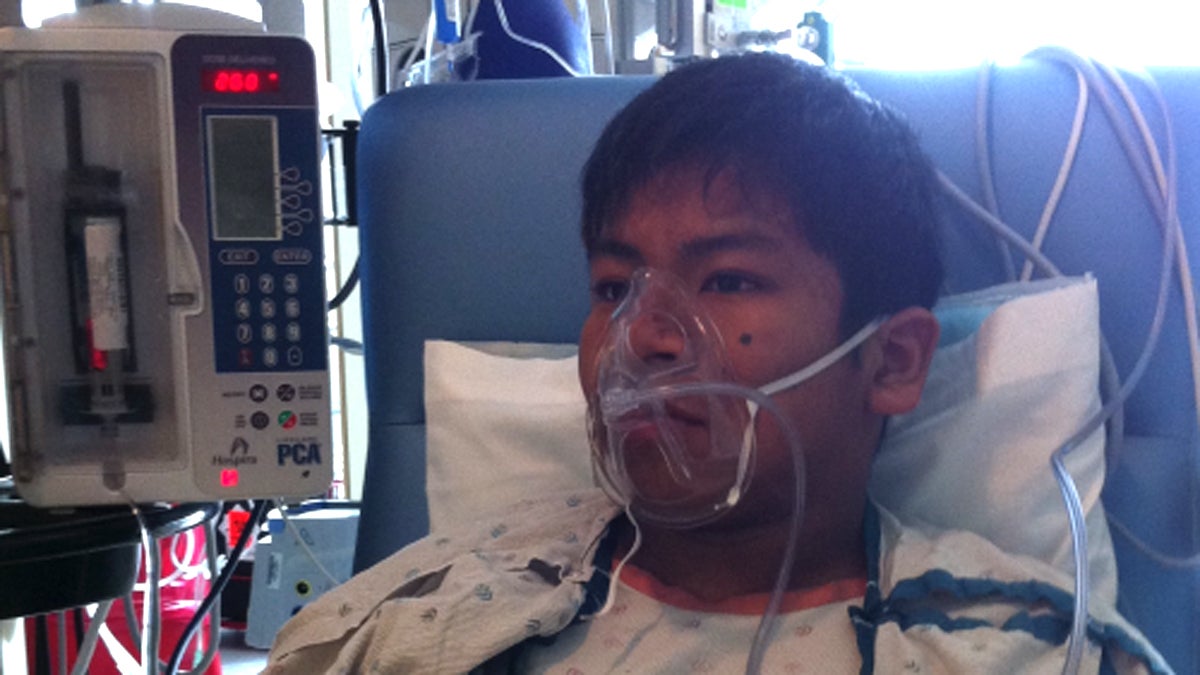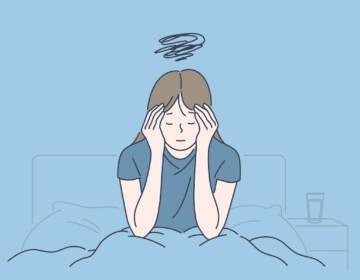Teen recounts experience of fighting for his life
Listen
A serious headache in 2010 kicked off a five-year medical odyssey for Diego Luke. (Photo courtesy of Luke)
My name is Diego Luke, and I am a 17-year-old high school junior in St. Paul, Minnesota. Growing up, I never missed a day of school for being sick. That all changed on my 12th birthday.
My name is Diego Luke, and I am a 17-year-old high school junior in St. Paul, Minnesota. Growing up, I never missed a day of school for being sick. I loved to play hockey and soccer, and was very active.
That all changed on my 12th birthday. We were celebrating at a friend’s house. I told my parents I wanted to leave early because I had an ear-splitting headache. After waiting for a couple hours to see if it would go away, we went to the emergency room. When the nurses took my vital signs, everything was normal, except my blood pressure, which was near 200/120.
They couldn’t believe it. Different nurses took it over and over, using different machines, manual and electronic.
Around midnight, the headache was gone. We’d been in a room for three hours and were beyond ready to get out of there. Then, the attending doctor talked to us. He said that I would need to be hospitalized until they figured out what was causing my abnormal blood pressure.
A couple of days after being admitted to the hospital, I was diagnosed with stage three Chronic Kidney Disease. I was put on a boatload of medication and told that when I reached stage five, I’d need dialysis or a kidney transplant.
About a year and a half after the diagnosis, I reached stage five and went on dialysis. Dialysis is a form of life support, where a tube is connected to your heart, and then it connects to a machine, which filters your blood.
I had dialysis three times a week, for four hours each session. Because of dialysis, I had to quit hockey and soccer. I was too worn out to play anyway. I felt beat up and tired all the time. I kind of floated through life, just trying to make it through each day, sleeping more than I was awake.
After eight grueling months on dialysis, I had a transplant. One of my mom’s coworkers stepped up. She was the closest match we could find.
On the day of the transplant, Aug. 1, 2012, I wasn’t nervous at all. When I woke up in the big room with all the machines and the nurses, I thought, “I beat it! It’s over!”
But just a day after being transplanted, I got pancreatitis, which was incredibly painful. My lungs filled with water, my kidney spasmed. I started to hyperventilate, and couldn’t breathe on my own for several days. An elephant mask helped me get enough oxygen. I was in the hospital for 13 days.
After being released from the hospital, I started to feel better, I had more energy, and a new perspective on life. I wasn’t angry anymore. The world was more colorful; everything seemed right. I started to play pick-up soccer and feel like myself again.
But in April, I noticed a golf golf ball-size lump on my neck. I told my parents and we decided we should get it checked out. After getting a biopsy, I was diagnosed with stage three Non-Hodgkin’s Lymphoma. It turns out the organ donor was positive for Epstein-Barr virus and the virus had entered my bloodstream and damaged my lymph system.
I started chemotherapy a couple weeks after, and for six months I did chemo once a week. Over the course of those six months I did not lose my hair, but I did gain a steroid-pumped appetite and 70 pounds.
These days, that extra weight is my biggest challenge. I am working hard to lose it but I am still on steroids, so it’s hard.
Now, five years later, I’m back playing hockey. I struggle with stamina, but I love the game. It’s the only thing that makes me feel like I did before all of the health problems.
WHYY is your source for fact-based, in-depth journalism and information. As a nonprofit organization, we rely on financial support from readers like you. Please give today.





